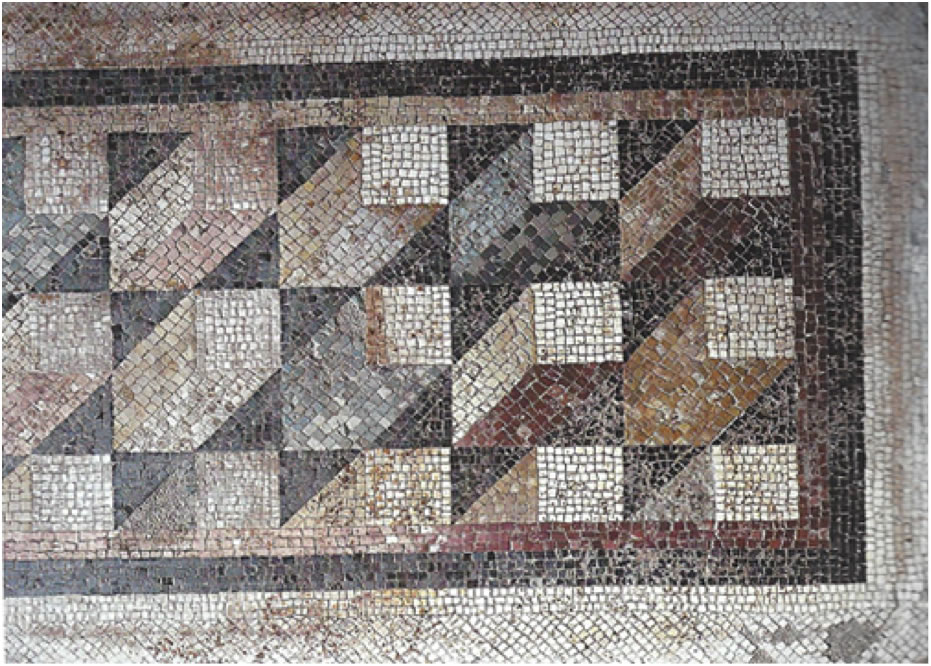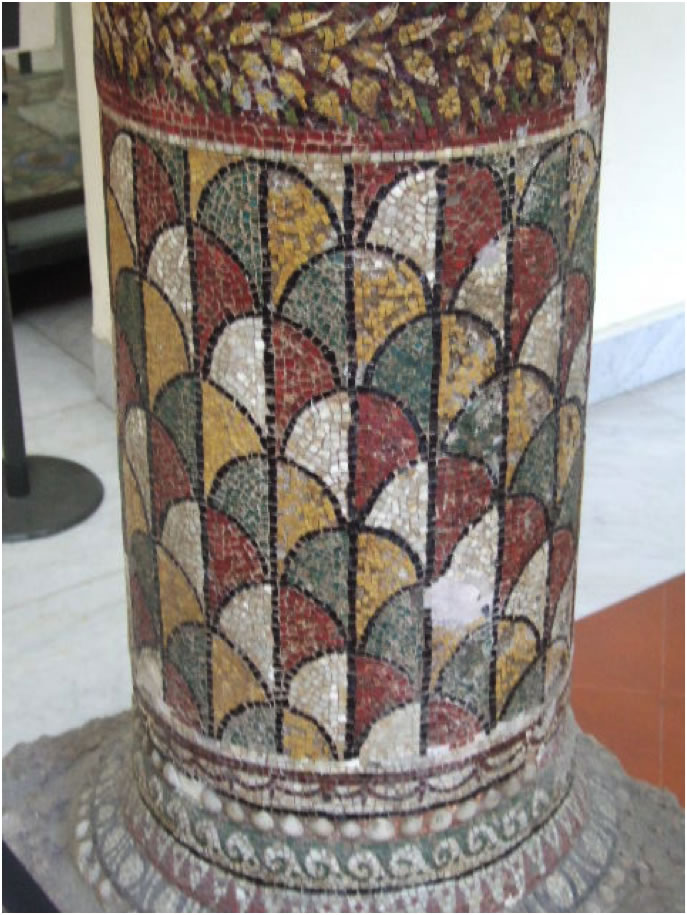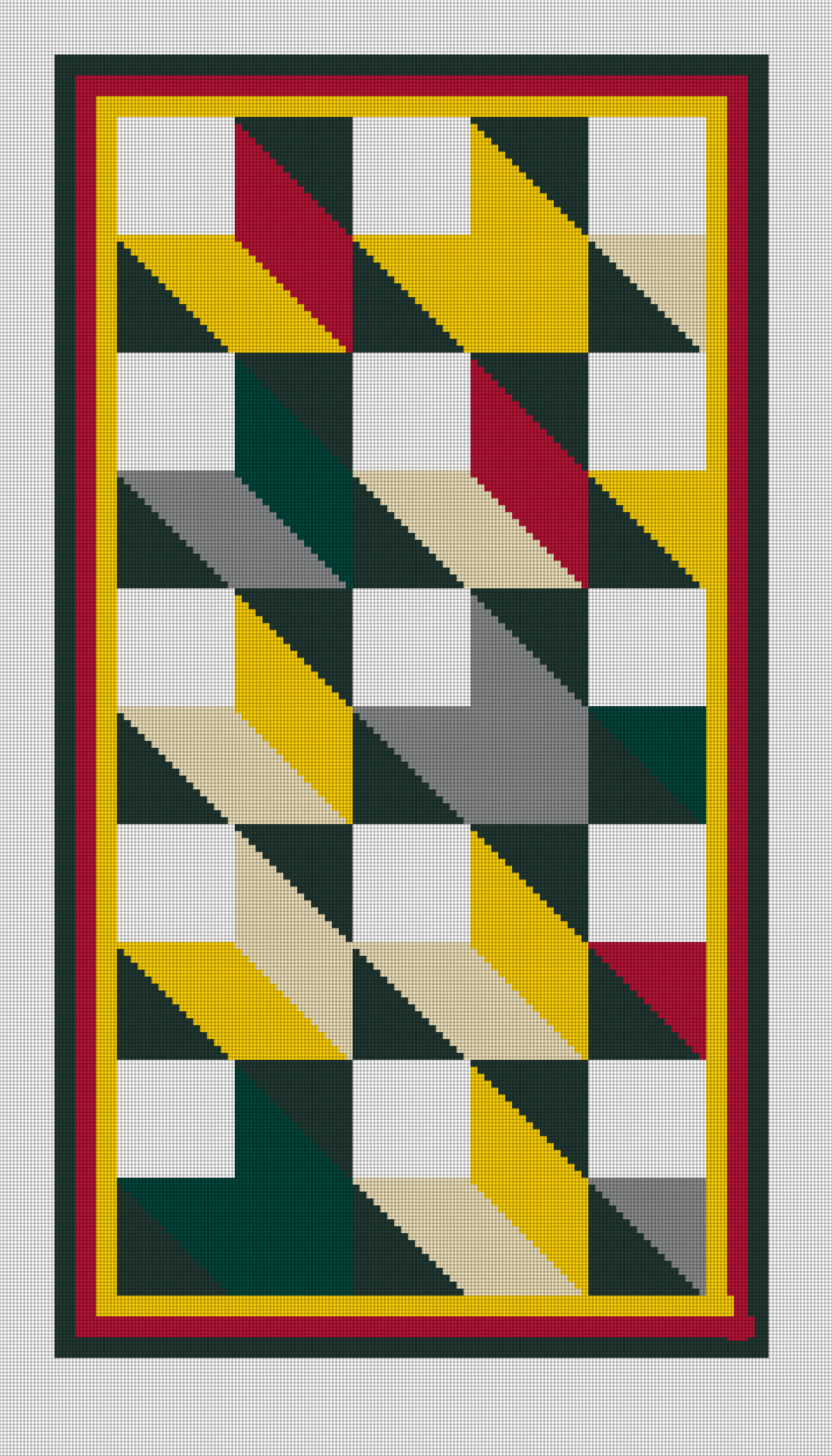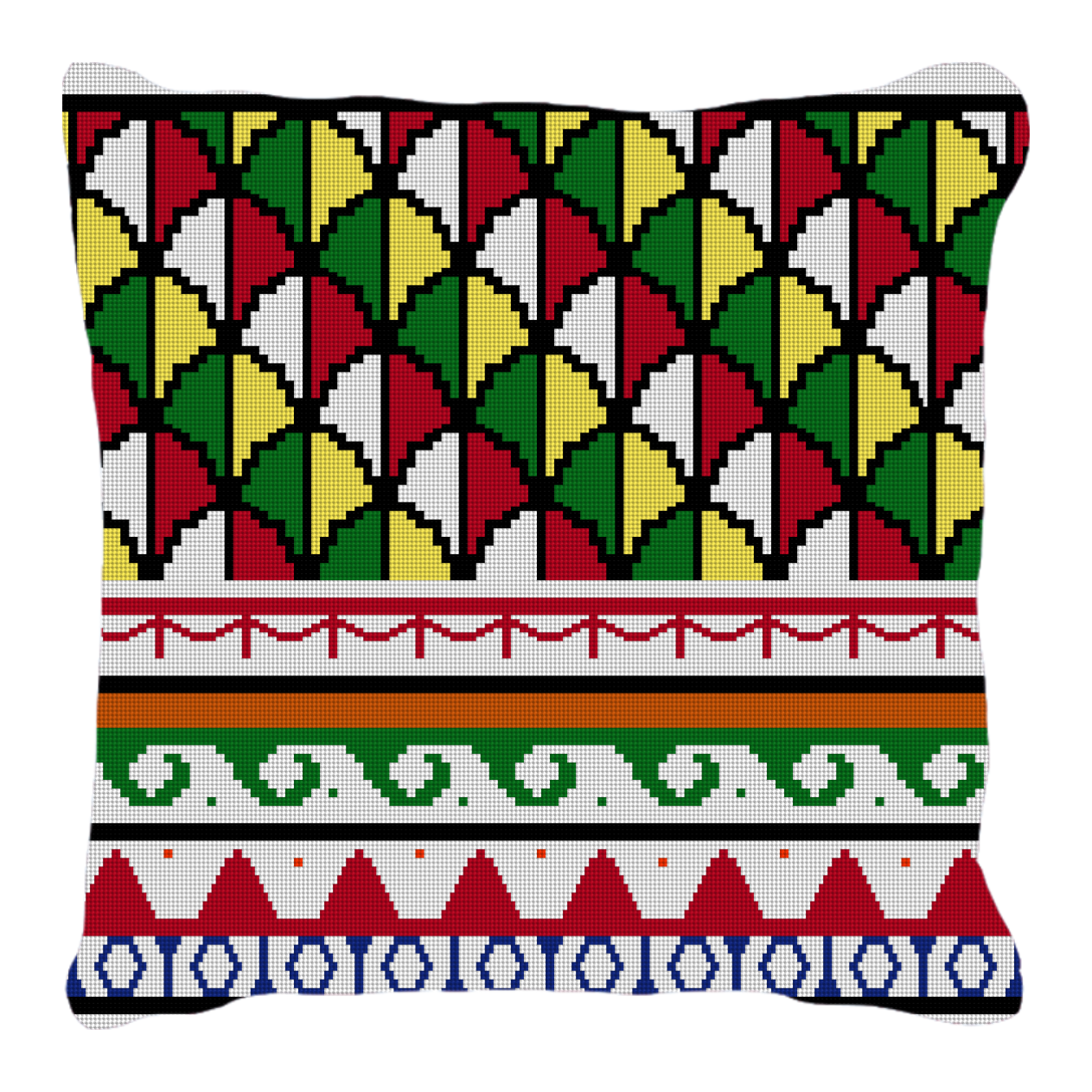By Peggy Bond
Geometric designs occur frequently in Pompeii as well was throughout ancient civilizations. Most often they are used as floors and many are black and white. In Pompeii are several polychrome mosaic floor treatments. One was found at the House of Publius Fannius Synistor where it was a threshold in the summer dining area. The mosaic stones were red, green, yellow, and gray on a white and black background. Discovered when the villa was excavated by Vincenzo de Prisco in 1894-5, the mosaic was removed to the excavator’s residence where is resided until acquired by the Archaeological Commission of Pompeii. The NeedlePaint recreation of this mosaic is a 22 x 40 inch 10 point canvas to be worked in Waverly wool and suitable for a rug or wall hanging.

Threshold from the House of Publius Fannius Synistor
Another distinctive geometric polychrome mosaic treatment is found on the columns in the appropriately name House of the Mosaic Columns. The columns are on display in the National Archeological Museum of Naples. The Needlepaint mosaic design is the section of the base of a column and is a 16 x 16 inch 14-point canvas to be worked in DMC threads or 2 stands of Waverly wool, ideal for a colorful pillow.

Column section from the House of the Mosaic Columns
These canvases are designed to be stitched using the mosaic stitch and thus much quicker to stitch than using the traditional continental for tent stitches.




Written by Seth Berman
Leave a comment